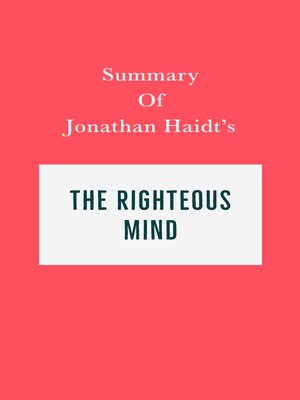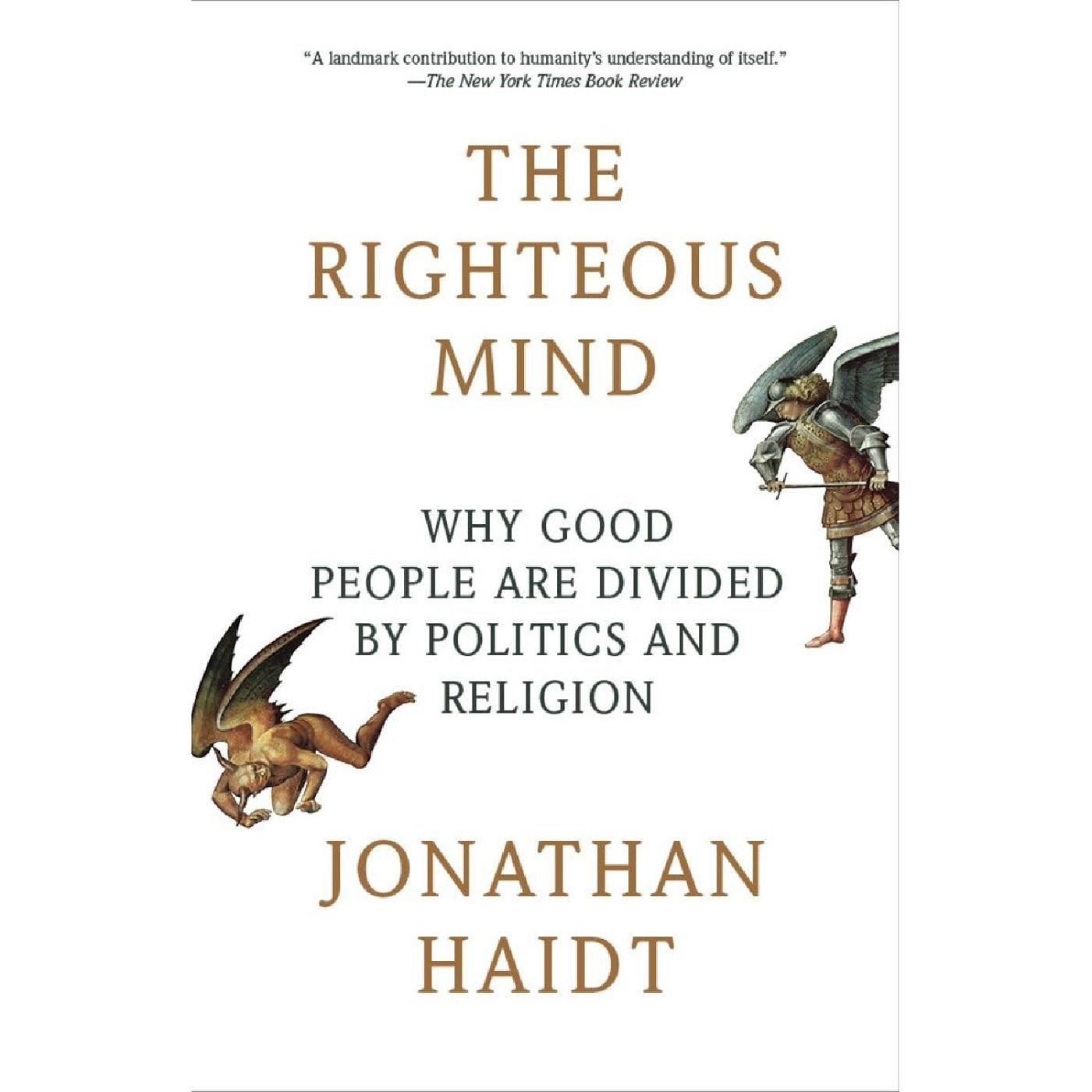

Haidt initially found moral psychology "really dull." He described it to me as "really missing the heart of the matter and too cerebral." This changed in his second year after he took a course from the anthropologist Allen Fiske and got interested in moral emotions. I only applied to four schools and had no recommendations from anyone." Fortunately for him, and eventually the field of psychology, Penn took a chance and let him in. I met interesting people and decided to apply." When I stepped into the psychology department at Penn everything felt right.

But they felt all wrong to me the buildings felt wrong and the people felt wrong.

"I started applying to schools in computer science thinking I would study cognitive science. Two years later he felt the pull of academia and began looking into grad school. Haidt graduated from Yale in 1985 with a degree in philosophy and landed a job as a systems analyst for the U.S Department of Labor.

"It was fascinating," he reported, "I was hooked after taking a few classes as an underclassman at Yale." But, as Haidt bluntly confessed, "it didn’t, philosophy was very unsatisfying." What did satisfy Haidt’s natural thirst for understanding human beings was social psychology. "My intellectual roots," he explained, date back to a "Woody Allen-style existential crisis during high school, which led me to major in philosophy in college." Along with seeing philosophy as being "intellectually sexy," he thought it might have the answers to his meaning-of-life chestnuts. I had the pleasure of visiting him at his office, which is currently in Tisch Hall at NYU (Haidt is a visiting professor at Stern School of Business), to speak about his background and how he came to write his forthcoming book, The Righteous Mind: Why Good People Are Divided by Politics and Religion. He strives to understand our inherent self-righteousness and morality as a collection of diverse mental modules to try to ultimately make society better off. It closes hearts and minds to opponents even as it makes cooperation and decency possible within groups." And while many of us understand this at a superficial level, Haidt takes it to heart. As Haidt writes on his website, "It binds people together into teams that seek victory, not truth. But what makes Haidt one-of-a-kind in academia is his sincere attempt to study and understand human morality from a point of view other than his own. If social psychology was a sport, Haidt would be a Phil Mickelson or Rodger Federer – likable, fun to watch and one of the best. Meet Jonathan Haidt, a professor of social psychology at the University of Virginia who studies morality and emotion.


 0 kommentar(er)
0 kommentar(er)
